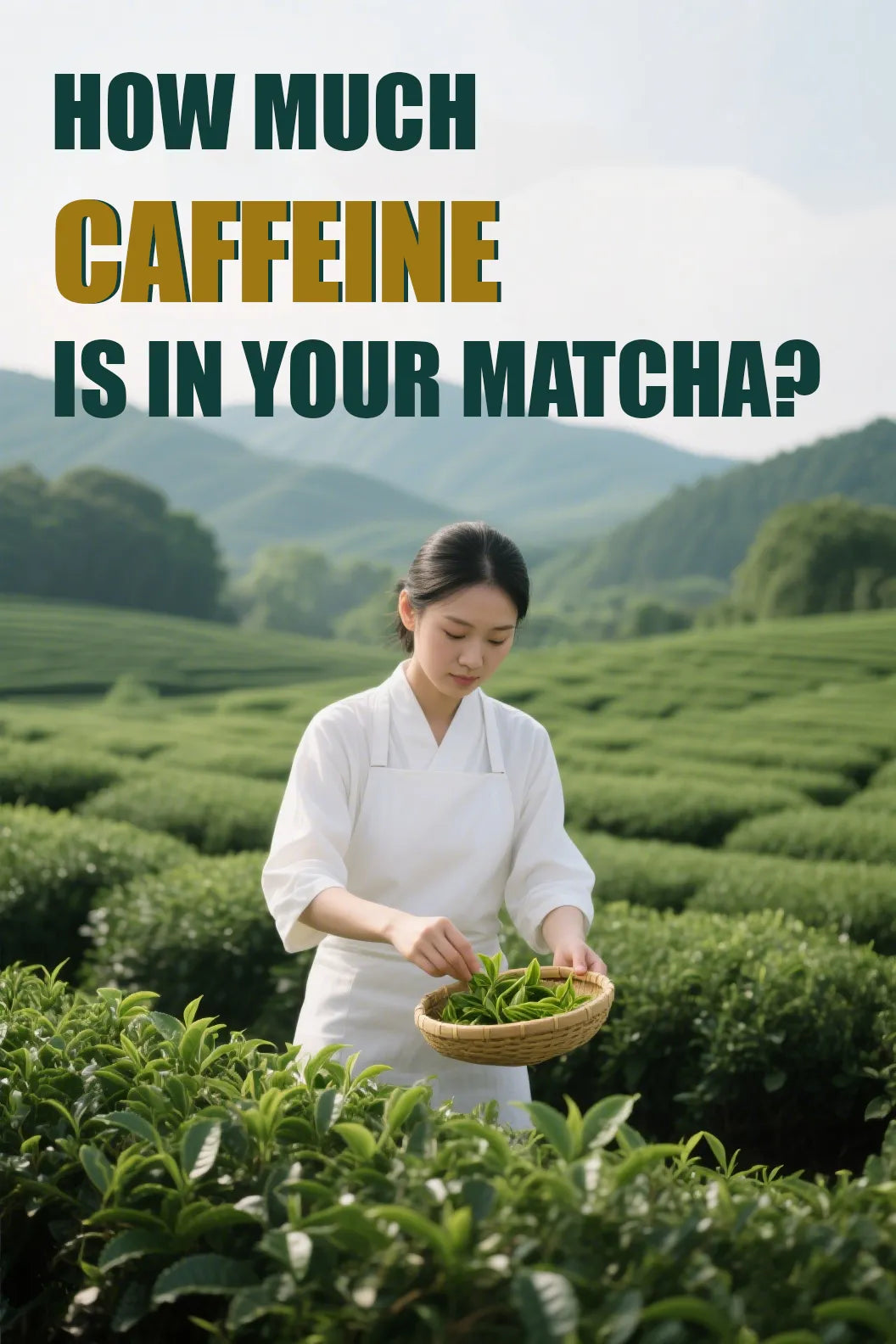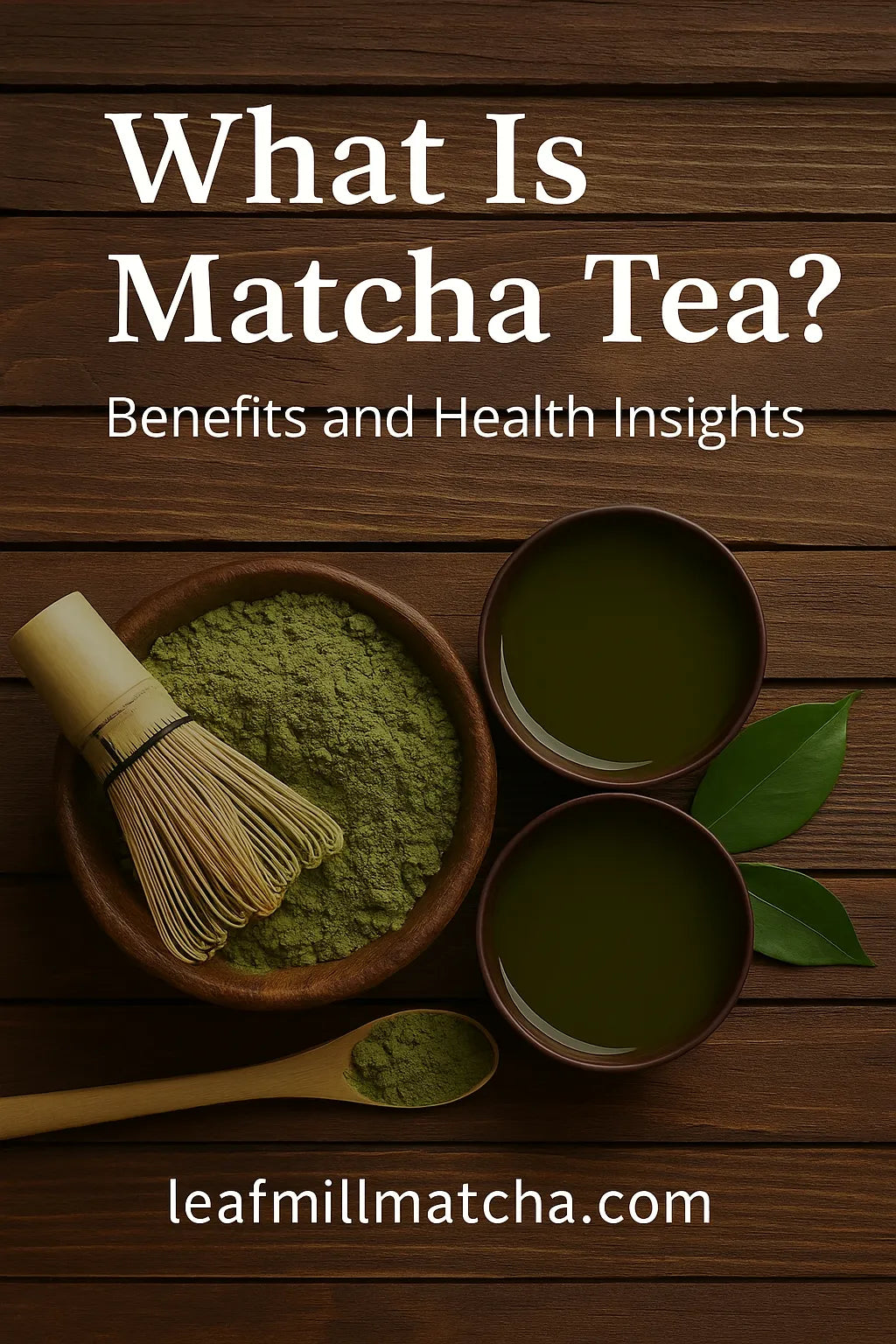Your Complete Beginner’s Guide to Matcha, From Ceremonies to Caffeine
🌱 What Is Matcha?

Matcha is a finely ground powder made from specially grown and processed green tea leaves, traditionally consumed in Japan and increasingly popular worldwide. Unlike regular green tea, where leaves are steeped and discarded, matcha involves consuming the entire tea leaf, offering higher nutritional and antioxidant benefits.
🍃 What Defines High Quality Matcha?

When searching for high quality matcha or high quality matcha tea, it’s essential to know what separates true ceremonial-grade matcha from culinary or low-grade powders.
✅ Characteristics of High-Quality Matcha:
|
Feature |
Description |
|---|---|
|
Color |
Vivid, bright jade green (indicating fresh, shade-grown leaves) |
|
Texture |
Ultra-fine, talc-like powder (usually stone-ground to 3000 mesh) |
|
Aroma |
Fresh, vegetal, slightly sweet—never bitter or musty |
|
Taste |
Umami-rich, smooth, mellow with subtle sweetness |
|
Origin |
Traditionally from Uji (Japan), now also grown in China under strict conditions |
Looking to try authentic, first-harvest ceremonial grade matcha?
👉 Explore Leafmill Matcha Ceremonial Grade here
🏷️ Look for Labels:
-
“Ceremonial Grade”
-
“First Harvest”
-
“Shade Grown”
-
“Stone Ground”
Authoritative Reference:
→ Japanese Tea Central Council of Tea recommends first-flush shade-grown leaves as the gold standard for matcha tea quality. [source]
🇨🇳 Chinese Matcha vs. Japanese Matcha

While Japan is known as the birthplace of ceremonial matcha, Chinese matcha has rapidly gained recognition due to:
- Similar shade-growing techniques
- Spring harvest leaves from high-altitude farms
- Lower environmental impact and competitive pricing
However, not all Chinese matcha is equal. Look for certified producers who follow ISO or JAS organic processing standards.
🧘♂️ The Chado Ceremony: The Heart of Matcha Culture
The word “Chado” (茶道) means “The Way of Tea,” referring to the Japanese tea ceremony rooted in Zen Buddhism. This ritual honors:
- Harmony (wa)
- Respect (kei)
- Purity (sei)
- Tranquility (jaku)
Ceremonial matcha used in Chado must meet the highest standards in texture, flavor, and freshness. Even today, top tea schools like Urasenke and Omotesenke insist on specific matcha grades for formal use. [source]
⚡ Caffeine in Matcha Tea: How Much Is Too Much?
One of the top concerns for new matcha drinkers is caffeine content. Here’s how matcha compares:
|
Beverage |
Caffeine (per 8 oz) |
|---|---|
|
Matcha Tea (2g powder) |
~60–70 mg |
|
Drip Coffee |
~90–120 mg |
|
Regular Green Tea |
~20–30 mg |
While matcha has moderate caffeine, it contains L-theanine, an amino acid that induces calm focus, reducing jitters often caused by coffee.
Scientific Source:
→ Journal of Functional Foods confirms L-theanine moderates caffeine absorption, enhancing mental clarity. [source]
📝 Final Thoughts: Why Matcha Is More Than Just a Drink
Whether you’re seeking a clean energy boost, a deeper connection to ancient tea rituals, or simply a better-for-you beverage, high quality matcha tea offers a unique combination of flavor, culture, and health benefits.
From the serene Chado ceremony in Japan to modern matcha farms in China, this emerald powder continues to inspire both tradition and innovation.
🎋 Ready to taste the difference?



